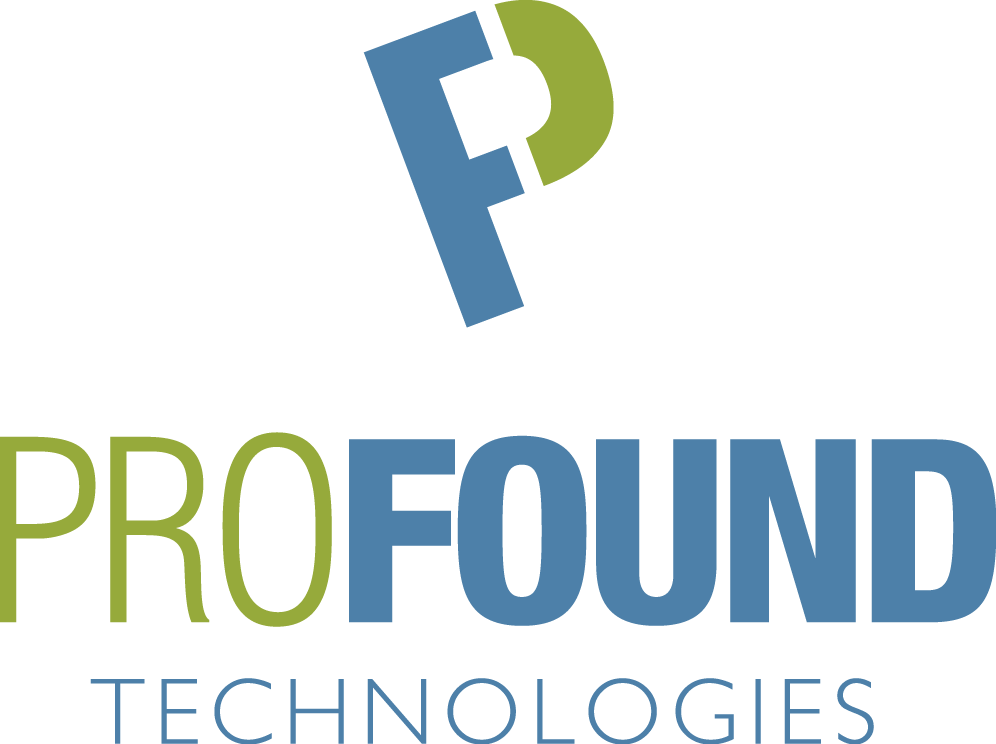State & Federal Policy Priorities
State Policy Priorities
As the statewide trade association for Pennsylvania’s life sciences community, Life Sciences PA is committed to ensuring the Commonwealth is the most attractive location in the United States to open and operate a life sciences company and invest in the research, development and manufacturing of medicines and technologies.
Life Sciences PA works with its State Policy Committee and various stakeholders in our diverse life sciences community to develop a shared set of recommendations and strategies that will support and catalyze Pennsylvania’s life sciences ecosystem – from the lab bench to the patient’s bedside.
These State Policy Priorities are revisited monthly and adjustments to their level of priority are made as warranted.
Questions about our State Policy Priorities?
If you have any questions on the State Policy Priorities, please contact Kurt Imhof, Senior Vice President, Policy & Public Affairs.
Education on the Value of Innovation
Successfully healing patients or providing them an enhanced quality of life is the passion behind life sciences innovation. However, the process by which new medicines and technologies are created is time- and resource-intensive. Studies have shown it takes more than 10 years and $2 billion to move an innovative new drug through the research-and-development and clinical trial process to approval.
This process is fraught with failure as fewer than 12 percent of medicines entering clinical trials are ultimately approved by the U.S. Food and Drug Administration. This failure is one of the reasons biopharmaceutical companies need to recoup some of those costs through products that make it to the market. Recouping those dollars allows companies to pursue further basic, translational, clinical and manufacturing research needed to turn basic science into a safe, usable and effective therapy for patients.
In fact, the biopharmaceutical industry regularly invests more of its revenues in R&D than any other industry. As a recent Congressional Budget Office report highlights, for many years the number averaged 18-20 percent, but in recent years that number has exceeded 25 percent.
Life Sciences PA works to ensure the Pennsylvania General Assembly and the Governor’s administration, understand this process and that patient access to groundbreaking therapies and cures through appropriate reimbursement in our market-based system are responsible for the Commonwealth’s leadership in life sciences innovation.
Education on the Complex Drug Pricing System
The process by which new medicines are priced by the manufacturer is determined in large part to the work outlined above; however, the cost borne by patients is the result of the complex drug pricing supply chain in the United States. While much attention is focused on the cost of prescription medicines, which account for approximately 10-14% of nationwide health care costs – a number that’s remained consistent for decades – the real issue remains out-of-pocket costs which are the result of insurance benefit design.
The price of medicines is the cause of much debate by the public and elected officials, and determining who pays for what medicines – and at what cost – is an important discussion to have. Life Sciences PA believes all actors of our complex drug pricing system have a role to play in this debate. The list of industry players who shape the final price a patient pays includes pharmacy benefit managers (PBMs), health insurance companies, pharmacies, healthcare providers, distributors and manufacturers. It is incumbent upon all of us to ensure that all parts of the prescription drug supply chain are acting in good faith and working to keep costs, especially those out-of-pocket costs borne by the patient, at an accessible level.
Life Sciences PA is committed to educating legislators on how insurance benefit design and various actors in the drug pricing supply chain can affect the out-of-pocket costs patients pay at the pharmacy. As noted above, the drug pricing, payment and distribution system is complex and includes many stakeholders. Life Sciences PA believes all stakeholders must be included in discussions around lowering the cost of prescription medicines and is opposed to proposals such as Prescription Drug Affordability Boards (PDAB) that focus solely on the role of biopharmaceutical manufacturers in this convoluted system.
Patient Access
Patients provide critical testimony on the effect of policy and regulations on their treatment and quality of life. Remaining focused on the voice of the patient is at the core of all innovation in the life sciences. Especially as medicines have become more individualized, the role of the patient in researching and developing new medicines has become increasingly important. Through Rare Disease Day and in working with our more than 50 patient advocacy group members, Life Sciences PA amplifies the voice of the ultimate beneficiary of our member companies’ research and development: patients.
The novel cures and treatments being developed by our member companies mean little if the patients they are meant to serve face barriers in accessing them. Life Sciences PA is opposed to policies that inhibit patient access to medicines and technologies such as nonmedical switching and copay accumulators that undermine the physician-patient relationship. Life Sciences PA was pleased to see biomarker testing pass the General Assembly and signed by the Governor in 2024. Life Sciences PA stands in support of policies that create the most inclusive access for patients.
Life Sciences PA is pleased to see policies introduced and advancing that address these access issues – non-medical switching, and copay accumulators (SB 268).
Right to Repair Legislation
Medical devices, like most complex equipment, need periodic maintenance and repair. Proper servicing of these life-saving and life-sustaining devices is vital to their safe and effective functioning and the safety of patients and device users. As part of their commitment to patient safety, original equipment manufacturers (OEMs) dedicate extensive resources to establishing comprehensive servicing programs to ensure their devices are properly maintained and continue to meet safety and effectiveness requirements determined by the Food and Drug Administration (FDA).
Legislation is being adopted in states throughout the country that would allow third-party repair servicers to attempt to repair these complex devices, and no longer rely on OEMs. This legislation is known as “Right to Repair.” Giving unregulated third-party servicers’ unlimited access to service manuals and other proprietary OEM information would serve to put patients and device users at greater risk. Access to the latest manuals is no substitute for the extensive training, knowledge and expertise provided by the OEM. Life Sciences PA stands firmly opposed to any Right to Repair legislation in Pennsylvania that would allow third-party servicers to interfere with medical devices.
Life Sciences PA also closely monitors legislative activity in the Pennsylvania General Assembly for bills that are largely focused on consumer digital electronic equipment, but may inadvertently capture FDA-approved medical technologies in their broadly written legislative language.
Developing the Life Sciences
Pennsylvania’s life sciences ecosystem is a key driver in the Commonwealth’s economy and provides more than 100,000 direct, family-sustaining jobs to Pennsylvanians. However, the industry is largely start-up in nature. Of the more than 3,000 life sciences establishments in Pennsylvania just over 65% of those entities are made up of ten employees or fewer. Life Sciences PA is supportive of expanding existing programs and creating new policies that play to one of the Commonwealth’s economic strengths, while also helping to catalyze the time- and resource-intensive process of researching, developing and commercializing life sciences innovations.
Life Sciences Pennsylvania was pleased to see Governor Shapiro’s administration put forth a comprehensive, ten-year economic development plan in 2024 – the first in the state in nearly 20 years. This plan includes the life sciences as one of the sectors of strength for the Commonwealth’s economy and LSPA looks forward to working with our state and regional partners on enhancing Pennsylvania’s innovation economy. Life Sciences PA is specifically supportive of the Governor’s $50 million investment in the life sciences and innovation economy along with additional programs listed below:
PA Innovation Funding
This funding is comprised of a $30 million, one-time investment in the life sciences, and an annual $20 million for innovation sectors. It is critical to ensuring Pennsylvania maintains and grows its leadership in these critically important sectors and encourages investments in groundbreaking medicines and technologies.
With our world-class research institutions, historic economic engines like agriculture and energy, and thriving sectors in life sciences, robotics and technology, and manufacturing, Pennsylvania has the tools to drive economic growth throughout the state. However, without strategic investment, Pennsylvania risks falling behind states like New Jersey, New York, North Carolina, Ohio, and many others that have prioritized strategic investments in these growth industries.
These states are leveraging their economic strengths to attract talent and companies to accelerate statewide economic growth. Establishing a statewide innovation initiative as proposed by the Governor is a necessary and transformative step to ensure every Pennsylvanian— rural, suburban and urban—share in the benefits of a robust innovation economy.
Pennsylvania ranks 4th in the nation in higher education R&D expenditures, investing almost $5 billion in 2020. However, that spending fails to translate into widespread economic growth – particularly in the state’s innovation economy where early-stage companies drive job growth and economic development. For instance, Pennsylvania ranked 11th in venture capital investment in 2023, 43 in rate of startup density and 48 in rate of new entrepreneurs.
Recognizing those limitations but being fully aware of Pennsylvania’s strengths – Pennsylvania is home to more than 3,009 life sciences establishments employing just over 100,000 individuals – its entrepreneurial spirit, and the determination of its workforce, we believe this investment will spur innovation and bring significant returns to Pennsylvania’s economy. Studies estimate that for every advanced industry job, an additional 2.2 jobs are created in supporting industries like manufacturing, logistics, and retail.
Life Sciences PA supports this investment in Pennsylvania’s innovation economy, particularly the life sciences. These investments are critical to maintaining the Commonwealth’s leadership in innovation and, most important, bringing biomedical breakthroughs to patients around the world.
Pennsylvania’s Life Sciences Greenhouses
The Life Sciences Greenhouses capture the innovation potential of the life sciences industry and nurture
that potential with critical early-stage funding and sector-specific business expertise. With locations in Pittsburgh, Harrisburg and Philadelphia, citizens from every part of Pennsylvania benefit directly as new companies are formed, jobs are created, additional capital is attracted to the Commonwealth, and life-saving technologies reach patients. Life Sciences PA is supportive of the Governor’s 2025 – 2026 proposed budget to fund the Life Science Greenhouses at their annual level of $3 million.
R&D Tax Credits
The Research and Development Tax Credit Program is vital for innovation as this program rewards increased research and development year-over-year. A business can apply for a ten percent credit equal to its increase in its three-year average of its research and development expenditures with qualified small businesses eligible for a twenty percent credit. An especially important part of this program is that these tax credits are tradeable for those companies in the life sciences industry but without commercial products yet, because the path to commercialization can last more than a decade. The tax credit may be just enough for a firm to make it to the next milestone and continue important product development. Life Sciences PA was pleased the R&D Tax Credit Program was expanded to $60 million in 2022 and is supportive of increasing the cap on the program to $120 million annually, especially considering it is annually oversubscribed in applications by approximately $100 million. We also support repealing the sunset provision that in 2025 would negate the recent $5 million increase to the program. Life Sciences PA is supportive of expanding the Research & Development Tax Credit from $60 million to $120 million, and appreciates the leadership of Life Sciences Caucus Co-Chairs, Representative Tim Briggs and Representative Valerie Gaydos to expand this program.
Keystone Innovation Program
The Keystone Innovation Zones (KIZ) are a great option for start-up life sciences firms to establish an office location as these geographic zones provide tax credits against the company’s tax liability with unused credits available for up to five years. KIZs are in strategic locations statewide. Life Sciences PA is supportive of the Governor’s 2025 – 2026 proposed budget to fund the Keystone Innovation Program at its annual level of $15 million.
Ben Franklin Technology Partners
The Ben Franklin Technology Partners (BFTP) is one of the nation’s longest-running technology-based economic development programs. Started in 1983 and positioned strategically throughout the state with regional headquarters in the Lehigh Valley, Philadelphia, Pittsburgh and State College, the BFTP has provided funding to early-stage and established companies – including life sciences companies – as well as business and technical expertise and access to a network of innovative, expert resources. Life Sciences PA was pleased Ben Franklin Technology Partners received a $2.5 million increase in the 2022 – 2023 budget and is supportive of the Governor’s 2025 – 2026 proposed budget to maintain funding for the Ben Franklin Technology Partners at $17 million.
Additionally, Life Sciences PA is supportive of the following economic development proposals:
Small Business Innovation Research (SBIR) Matching Grants
Innovative research and the development of groundbreaking medicine, therapeutics and diagnostics is a top priority for life science companies throughout Pennsylvania. These innovations require an abundance of resources, which is why support at both the federal and state levels is important. Many of these companies rely on SBIR (Small Business Innovation Research) funds as a critical component to moving their work forward. Because these federal funds are critical to innovation many states have created a matching program to provide additional, dedicated funds to further diffuse these costs. It is our goal at LSPA to bring a state matching program to SBIR funding to further support our life sciences ecosystem in Pennsylvania. Life Sciences PA is supportive of utilizing a portion of the Governor’s proposed Innovation Fund for this program, along with the legislative vehicle that has been put forth by Rep. Paul Takac in the PA House of Representatives.
Dispersed by the Department of Health, the CURE Program awards grants to Pennsylvania-based
organizations for biomedical research, clinical investigations, and health services research. Studies funded by the grants aim to improve the delivery of health care, promote health, prevent disease and injury, and translate research advances to community health care practice. Life Sciences PA is supportive of increasing the percentage of annual Tobacco Settlement payments for health research grants.
Strengthening the Commonwealth
The Commonwealth of Pennsylvania is a destination for Americans to start and grow business, raise families, attend secondary schools, and obtain post graduate degrees…for many reasons. Maintaining and expanding Pennsylvania’s economic competitiveness and creating a business environment that builds upon the Commonwealth’s existing economic strengths is critical for a robust life sciences ecosystem. Life Sciences Pennsylvania and its member companies are committed to fostering a policy and business climate that incentivizes company growth while bolstering and diversifying the life sciences workforce:
Creating Jobs and Growing the Economy
Pennsylvania’s Life Sciences industry is a backbone of the Commonwealth’s economy. From 2015 to 2020, direct Life Sciences industry employment in Pennsylvania grew to 102,000 direct jobs, which is a 51% increase over a five-year period. Additionally, the industry was responsible for another 230,000 jobs through business purchases and household expenditures. All told, the industry generated a total state economic output of $105.6 billion – comprised of a direct economic impact of $61.9 billion and indirect economic impact of $43.7 billion.
One caveat to the strong numbers outlined above is that of the Commonwealth’s more than 3,000 life sciences establishments, more than 60% of those are comprised of fewer than 10 employees. These companies require specific investments in the life sciences and innovation (list above) but also require broad economic incentives to grow and thrive. Life Sciences PA is supportive of:
Association Health Plans
Starting and running a life sciences company comes with significant costs. These costs can be a defining factor for startups in the life sciences as to whether they flourish or collapse. One of the largest expenses for these small companies is health insurance. In fact, health insurance costs are the second highest expense after employee salaries. Offering competitive benefits packages is a key factor in both attracting and retaining top talent. Unfortunately, small companies are often left with few and expensive options for insurance coverage. One opportunity to drastically improve these options is the adoption of Association Health Plans (AHP). Association Health Plans are a type of group medical insurance for employers that allows smaller companies to access the health insurance savings associated with large group medical coverage. By adopting an Association Health Plan at Life Sciences PA, our members could improve their purchasing power by pooling all enrollees throughout the Association. Life Sciences PA is supportive of Representative Gaydos’ efforts on this issue.
Favorable Business Tax Policy
Pennsylvania has one of the least competitive corporate tax environments in the country. In 2023, the Commonwealth ranked 41st out of 50 states in the Tax Foundation’s Corporate Tax Rank. This ranking is due to two main contributing factors: PA is one of the few states that caps the usage of net operating
losses and Pennsylvania previously had the highest non-graduated Corporate Net Income (CNI) tax rate in the country, at 9.99 percent, though that is on a downward trajectory.
Life Sciences PA is pleased the 2022 tax code bill included a reduction in the CNI from 9.99% to 4.99% over a period of nine years. Life Sciences PA will continue to work with other stakeholders throughout the Commonwealth to expedite the CNI reduction and make net operating losses tradable – both of which make the state a more attractive place to start, operate and grow life science companies.
Life Sciences PA is pleased the Governor’s 2025 – 2026 budget includes plans to accelerate the reduction of the CNI to 4.99 percent by 2029. Life Sciences PA is also supportive of efforts to allow for the sales of Net Operating Losses.
Public Health Benefits of Prevention
Though much of Life Sciences PA’s work is focused on bringing novel treatments and cures to patients, it is important to note that our Commonwealth is a robust manufacturer of vaccines and is a leader in public health and pandemic preparedness. Vaccines have virtually eradicated diseases like polio, whooping cough and typhoid fever. Unfortunately, recent online movements – none of which are grounded in hard science – have led people to believe vaccinations are unhealthy or have alternative health consequences, hence the recent rise in cases of mumps, measles, and other easily preventable diseases. Life Sciences Pennsylvania will continue to advocate for policies that ensure children and adults have access to vaccines that prevent a wide-range of debilitating, and sometimes deadly, diseases. Life Sciences PA will also ensure legislators are educated on the groundbreaking research, development and manufacturing efforts of our members working on vaccines, diagnostics, and therapeutics to address future public health crises. Life Sciences PA is supportive of efforts to incentivize and increase pediatric and adult vaccination rates.
Advocacy Updates
Be the first to know the latest in advocacy news from LSPA!
Join the LSPA Network
Join more than 900+ companies across the country and get the latest updates from LSPA!
Federal Policy Priorities
Pennsylvania is a global leader in researching and developing new therapies, cures, and devices that help patients live longer, healthier lives. This innovation is due in part to the policy and regulatory ecosystem we enjoy in the United States.
Life Sciences PA works with its Federal Policy Committee and national partners to develop a set of policy issues and recommendations that will support and enhance the country’s life sciences ecosystem and maintain Pennsylvania’s leadership in life sciences innovation.
As the statewide trade association for the life sciences, our public policy advocacy engages and educates the Pennsylvania Congressional Delegation on those policy priorities that incentivize innovation and protect patient access.
Questions about our Federal Advocacy Priorities?
If you have any questions on the Federal Advocacy Priorities, please contact Lara Flynn, LSPA’s Senior Director of Federal Policy & Public Affairs.
Education on the Value of Innovation
Successfully healing patients or providing them enhanced quality of life is the passion behind innovation. However, the process by which new medicines and technologies are created is time and resource intensive. Studies have shown it takes more than 12 years and $2.6 billion to move an innovative new drug through the research-and-development and clinical trial processes to approval.
This process is fraught with failure as fewer than 12 percent of medicines entering clinical trials are ultimately approved by the U.S. Food and Drug Administration. This failure is one of the reasons biopharmaceutical companies need to recoup some of those costs through products that make it to the market. Recouping those dollars allows companies to pursue further basic, translational, clinical and manufacturing research needed to turn early scientific discoveries into safe, usable and effective therapies for patients.
In fact, the biopharmaceutical industry regularly invests more of its revenues in R&D than any other industry. As a recent Congressional Budget Office report highlights, for many years, the number averaged 18-20 percent, but in recent years that number has exceeded 25 percent.
Life Sciences PA works to ensure the Pennsylvania Congressional Delegation, comprised of two senators and seventeen members of the House of Representatives, understand this process and that patient access to groundbreaking therapies and cures through appropriate reimbursement in our market-based system are responsible for the United States’ leadership in biopharmaceutical innovation.
In addition to bringing successful FDA approved treatments and cures to patients, this ecosystem also delivers an economic benefit to the Commonwealth. In September of 2022, Life Sciences Pennsylvania released an Economic Impact Report compiled by KPMG. This report identified that that the industry directly employed more than 100,000 in Pennsylvania during 2020. When considering the indirect and induced contributions of the industry, the industry is estimated to be responsible for supporting an additional 230,000 jobs. The economic driver that the Life Sciences community represents must be considered. This ecosystem, across the Commonwealth of Pennsylvania includes a diverse workforce which includes direct and indirect jobs, service providers, etc.
Improving Patient Access
Patients provide critical testimony on the effect of policy and regulations on their treatment and quality of life. Remaining focused on the voice of the patient is at the core of all innovations in the life sciences. Especially as medicines have become more personalized, the role of the patients in researching and developing new medicines has become increasingly important. Life Sciences PA works with our more than 55 patient advocacy group members to amplify the voice of the ultimate beneficiary of our member company research and development.
Aside from Medicare and Medicaid changes at the Federal and State level, there continue to be an enormous number of obstacles to patient access to these medications in the Commonwealth, and around the country. These include:
Insurance Benefit Design and Access Restrictions:
It’s important that when discussing patient access, we also highlight the drug pricing supply chain in the United States. While much attention is focused on the cost of prescription medicines, which account for approximately 10-14% of nationwide health care costs – a number that’s remained consistent for decades – the real issue is the out-of-pocket costs borne by patients.
The cost of medicines is the cause of much debate by the public and elected officials and determining who pays for what medicines and at what cost is an important discussion to have. Life Sciences PA believes all parts of our complex drug pricing system – pharmacy benefit managers (PBMs), health insurance companies, pharmacies, healthcare providers, distributors and manufacturers –have a role to play in this debate. It is incumbent upon all of us to ensure that all parts of the prescription drug supply chain are acting in good faith and working to keep costs, especially those out-of-pocket costs borne by the patient, at an accessible level.
Life Sciences PA is committed to educating legislators on how insurance benefit design and various actors in the drug pricing supply chain can affect the out-of-pockets costs patients pay at the pharmacy. As noted above, the drug pricing, payment and distribution system is complex and includes many stakeholders. Life Sciences PA believes that all those stakeholders must be included in any, and all, discussions around lowering the cost of prescription medicines.
Pharmacy Benefit Managers:
At the conclusion of the 118th Congress, we were encouraged to see bipartisan and bicameral support acknowledging the outsize role of PBMs and demanding transparency and reporting obligations to Congress on often misleading practices.
In the 118th Congress, six key committees have advanced legislation that would increase PBM transparency and reporting obligations and address other business practices, including The DRUG Act (S1542/HR6283), Protecting Patients Against PBM Abuses Act (HR2880), and The Lower Costs, More Transparency Act (HR5378). We believe several of the policies included in these bills would help improve patient access and lower patient costs at the pharmacy counter. We understand the drug pricing, payment, and distribution system is complex. Life Sciences PA believes all stakeholders must be included in discussions around lowering the overall cost of prescription medicines. Life Sciences Pennsylvania encourages continued attention to the role of pharmacy benefit managers in this supply chain in the 119th Congress.
Importation of Prescription Drugs:
Life Sciences PA is opposed to proposals that allow for the importation of prescription medicines. Though a common idea to lower the price of prescription drugs, policies that promote this idea could severely undermine the safe, closed drug-supply chain we enjoy in the United States. Several past FDA commissioners, from both Democrat and Republican administrations, have warned of the potential consequences of allowing drug importation, and the Congressional Budget Office has found that importation will do almost nothing to actually lower drug costs. Finally, former FBI Director and federal judge, Louis Freeh, released the findings of an investigation (with a more recent addendum) that note the ways drug importation would affect public health, safety and law enforcement.
Medical Devices
With more than 330 medical device and diagnostic companies, Pennsylvania is home to a significant number of entities working on developing new technologies to help patients live longer, healthier lives. As innovators and manufacturers, these companies benefit from policies that incentivize both of those endeavors.
Life Sciences PA has focused its efforts on support for a coverage pathway that would align reimbursement from the Center for Medicare and Medicaid Services with approval for a “breakthrough device.” This regulatory change, known as Transitional Coverage for Emerging Technologies (TCET), will provide patients access to innovative medical technologies and ensure medical technology companies, many of whom are pre-revenue, have a market through which to disburse their technology – a key component to generate continued investment in their research and development of innovate medical technologies. Unless reimbursement through Medicare or a commercial insurer is in place medical providers will not purchase and use the new medical device, which could prevent patient access to lifesaving technology. Without reimbursement a “breakthrough” device, and the company manufacturing it, could face future research and commercialization delays after having already spent many years and millions of dollars developing their medical technology.
Life Sciences PA supports the Ensuring Patient Access to Critical Breakthrough Products Act – H.R. 1691. This act would ensure FDA-approved breakthrough technologies are covered by CMS for several years during which time CMS would be required to make a permanent coverage determination. We are pleased this bill has enjoyed broad, bi-partisan support from the PA congressional delegation in the past and will work to ensure that support is maintained in the 119th Congress.
Robust Research & Development
Pennsylvania is a global leader in researching and developing new therapies, devices and diagnostics that help patients live longer, healthier lives. This innovation is due in part to the policy and regulatory ecosystem we enjoy in the United States.
In 2023, Pennsylvania research institutions and small companies received more than $2.3 billion in NIH funding. This critical funding provides our ecosystem foundational resources for biomedical innovation. It is complemented by significant private funding necessary to advance basic scientific research into safe, usable, and effective medicines. In fact, a 2022 report found that “[private]…industry accounts for nearly two-thirds of U.S. medical and health investment in R&D” and the “Federal government investment accounts for one-quarter (25%) of all U.S. medical and health R&D…”
As a critical component of this ecosystem, it is essential we continue to expand support for the National Institutes of Health to ensure the United States – and Pennsylvania – remain a global leader in researching and developing new therapies, cures, and technologies that help patients live longer, healthier lives. Life Sciences PA supports a robust NIH budget as well as opportunities for Pennsylvania to maintain its leadership role with continued collaborative grant support including the DOD, EDA and NSF. Specifically, we encourage our membership to contact their members of Congress through our Advocacy Action Center regarding the recently announced 15% indirect cost rate that immediately applies to all new and existing NIH grants.
The NIH is the leading investor worldwide in basic scientific research. This funding supports the crucial first step in life sciences investment through discovery and understanding of human biology and physiology. Pennsylvania research institutions and small companies received more than $2 billion in NIH funding in 2023 and, in many cases, hold contractual agreements with the NIH. This research also leads to spin-out companies and technology transfer that perpetuate the cycle of innovation in the Commonwealth. This cut threatens continued research and development in potential treatments and cures for patients.
Small Business Innovation Research (SBIR) and Small Business Technology Transfer (STTR) Reauthorization
Innovative research and the development of groundbreaking medicines, therapeutics and diagnostics is a top priority for life science companies throughout Pennsylvania. These innovations require an abundance of resources, which is why support at both the federal and state levels is important. Many of these companies rely on SBIR (Small Business Innovation Research) funds as a critical component to moving their work forward. The Small Business Innovation Research (SBIR) and Small Business Technology Transfer (STTR) programs help translate cutting-edge discoveries into real-world solutions — driving economic growth, creating jobs, and improving public health. These programs are currently scheduled to expire September 30, 2025.
Life Sciences PA supports the permanent reauthorization of the Small Business Innovation Research (SBIR) and Small Business Technology Transfer (STTR) programs, created in 1982 and 1992, respectively. While not life sciences specific, these two programs fund domestic small businesses engaging in research and development on the path to technology commercialization. In 2021, the SBIR program funded more than $30 million in life sciences research in Pennsylvania. This funding has helped many of our small member companies grow and thrive.
Inflation Reduction Act (IRA) Implementation
Congressman, John Joyce, MD again introduced the Optimizing Research Progress Hope and New (ORPHAN) Cures Act (H.R. 946). A rare disease is defined as one that affects fewer than 200,000 people. The process of taking a rare disease medicine from research through development and approval for patients has many unique challenges. With small patient populations, the development of medicines for rare diseases is significantly more difficult, costly, and risky than typical drug research and development. The ORPHAN Cures act will expand and clarify the exclusion for orphan drugs under the drug price negotiation program, therefore providing hope for millions of patients around the world facing thousands of unmet medical needs.
Additionally, we were encouraged by bipartisan support for the Ensuring Pathways to Innovative Cures (EPIC) Act. This legislation would give small molecule medications the same period of exemption from Inflation Reduction Act (IRA) price controls as biologics. The bipartisan EPIC act would reverse the “Pill Penalty” and encourage innovation for both large and small molecule medications, without leaving potential treatments for cancer and other diseases on the shelf. This legislation is a step in the right direction toward addressing several misguided components of the IRA.
Finally, Life Sciences PA will continue to monitor the implementation of the “negotiation” process that was a central tenant of the IRA. Through this policy the Centers for Medicare and Medicaid Services works with biopharmaceutical manufacturers to determine a price for the medicines those companies research, develop and manufacture. Life Sciences PA is committed to ensuring our congressional delegation understands the complicated nature of prescription drug pricing and how sweeping policy changes can inhibit innovation for life-saving medicines.
R&D Amortization:
Previously, Section 174 of the US Tax code allowed businesses to deduct “research and experimentation” expenses in the same taxable year in which they occurred. Currently, businesses must amortize such deductions over five years for domestic expenditures or over 15 years for foreign expenditures.
Life Sciences Pennsylvania supports the American Innovation and R&D Competitiveness Act which will fix this issue that adversely affects adversely affects many of our pre-revenue and early stage member companies. In a bipartisan manner, the majority of the Pennsylvania delegation has previously voted in favor of the repeal of Section 174 so that smaller companies can resume investing maximal resources in critical R&D.
Intelluctual Property
Strong intellectual property protections are the foundation for innovation in the life sciences. The U.S. patent system, though now ranked 12th worldwide by the U.S. Chamber of Commerce, maintains important protections for companies researching and developing new medicines and technologies. These protections are especially important for the many small life sciences companies that call Pennsylvania home, and for the technology transfer offices that many of our academic institutions operate to move inventions from the lab to widely available treatments and cures for patients.
The University and Small Business Patent Procedures Act Of 1980, more commonly called the Bayh-Dole Act, provides recipients of federal research funding the right to retain ownership of the inventions that were conceived or first actually reduced to practice under their federal funding agreements. Intended to promote utilization of inventions arising from federally supported R&D and increase the number of inventions that progressed from the laboratories into the marketplace.
Four decades on, changes to these policies would dramatically disrupt the already fragile ecosystem of academic research institutions, industry partners as well as private investment into treatments that have the potential to extend life expectancy in patients. This does not accurately account for the significant time and resources private investment organizations and companies make to research and develop safe, effective, and usable medicines.
Life Sciences Pennsylvania and the academic research institutions as well as R&D based companies that call Pennsylvania home, understand the importance of the strong intellectual property protections that we have in the U.S. Exercising “march-in rights” will significantly disrupt an innovation ecosystem that already faces challenging odds developing novel therapies and technologies for unmet medical needs.
Life Sciences Pennsylvania joins the Partnership for the U.S. Life Science Ecosystem (PULSE) in sharing the unique nature of mergers and acquisitions (M&A) within our membership. To successfully bring cutting edge breakthroughs from bench to bedside—from the earliest NIH funded research in the academic setting through large scale manufacturing, mergers and acquisitions are a cornerstone of the American success of innovation. DOJ and FTC regulatory changes should be nuanced in this space.
Rare Disease Research and Development
A rare disease is defined as one that affects fewer than 200,000 people. The process of taking rare disease medicines from research through development and approval for patients has many unique challenges. With small patient populations, the development of medicines for rare diseases is significantly more difficult, costly, and risky than typical drug research and development.
In response to these challenges, Congress passed the Orphan Drug Act in 1983 to promote investment in the development of rare diseases. This act provides companies and researchers with incentives, such as seven years of exclusivity and a 25% tax credit for qualified clinical testing expenses. In 1983 only 38 drugs had been approved for rare diseases. Since the passage of the Orphan Drug Act more than 650 therapies have been approved for rare diseases.
Life Sciences PA supports the Orphan Drug Act and opposes changes to it, such as the halving of the tax credit from 50% to 25% in 2017, limiting the number of indications for which companies can utilize the credit, and other modifications that would divert investment away from rare disease research.
Additionally, Life Sciences Pennsylvania supports Federal incentivize investment in the R&D of therapies and cures for rare disorders as well as policies to improve public health and pandemic preparedness including anti-microbial resistance, PAHPA reauthorization, and substance use disorder crisis.
The Rare Pediatric Disease Priority Review Voucher Program (PPRV) incentivizes the development of novel therapies to treat rare pediatric diseases. As of December 20, 2024, this program has expired. Life Sciences PA urges our members of Congress to reauthorize this critical program by passing the Give Kids a Chance Act of 2025 (H.R. 1262/S.932)
Administration Changes
As policy changes emerge from the federal Executive Branch, we will continue to monitor and provide our member companies’ perspectives on the staff changes at the U.S. Department of Health and Human Services; NIH funding freezes; and tariffs; all of which have increased uncertainty in our industry. We are closely monitoring additional staff changes at the Food and Drug Administration (FDA). The departure of individuals that have a deep understanding of the industry and considerable institutional expertise, could create delays and issues for our members – something we will be following closely.
Life Sciences PA will continue to encourage the Pennsylvania Congressional delegation to support the efforts of our members to improve health globally and the economic growth of our Commonwealth.
Thank you to our Policy & Public Affair Sponsors!













Get Updates
from LSPA
Stay up-to-date on the latest news and events from Life Sciences PA, insights from the life sciences industry, and so much more!

Life Sciences Pennsylvania was founded in 1989 by a biotech scientist at Penn State University. Today it has grown to represent the entire life sciences industry – biotechnology and diagnostic companies, medical device companies, pharmaceutical companies, investment organizations, research institutions, and myriad service industries that support the life sciences in Pennsylvania.


